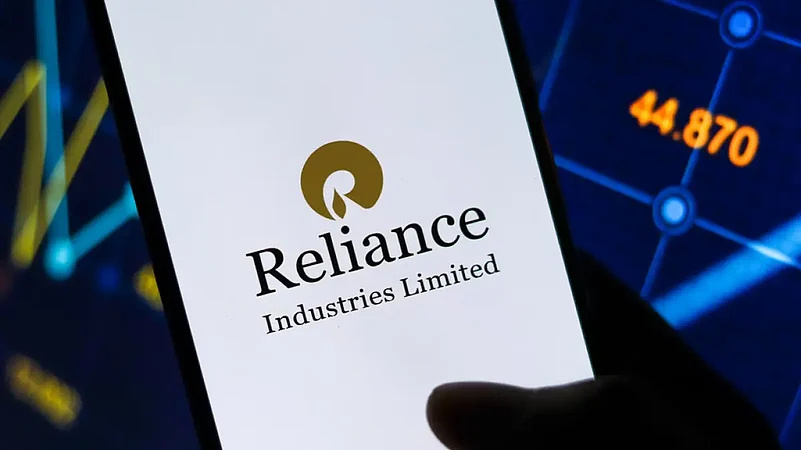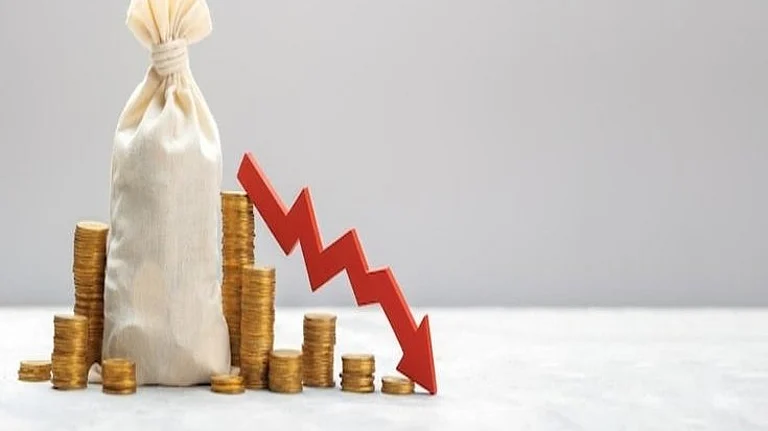With the Russia-Ukraine war sending the world's crude oil supply into a tizzy, the only lucky companies in India were those in the business of refining the black gold. Add to that the Modi government making it clear to the West that India will continue to import crude oil from Russia to safeguard its national interest. The result? A very happy Reliance Industries Ltd (RIL), which operates the world's largest petroleum refinery in Gujarat’s Jamnagar, finding itself in the sweet spot.
As Russia-origin crude oil became available at a $25-$30 discount to India, Mukesh Ambani-owned RIL’s Jamnagar complex, with a capacity of 1.24 million barrels per day, and Nayara Energy’s Vadinar plant accounted for 69 per cent of increased supply.
In the quarter ended March 2022, the company’s gross refinery margin (GRM), a measure of how much a company earned by refining a barrel of crude oil, grew to $15.1 dollars from $5.1 in the same quarter last year. The upside for RIL was so high that private wealth management firm Bernstein raised the target price for the Reliance Industries share to Rs 3,360, indicating an upside of over 30 per cent.
While some analysts believe that RIL, with businesses like Jio and Reliance Retail waiting to unlock their value, is an undervalued stock, a 30-plus per cent rise in a blue chip company, that too in a bear market, was bound to attract government’s attention.
RIL’s net profit in March quarter came in at Rs 16,203 crore for quarter ended March 2022, marking an increase of 22.5 per cent from Rs 13,227 crore during the same period last year. Its revenue from operations jumped 37 per cent annually to Rs 2,11,887 crore. Sharp jump in profit came on the back of strong growth in oil to chemicals business, the country's most valuable company said.
Enter: Windfall tax. On July 1, the Centre introduced a windfall tax to take away a part of the super profits that Reliance and other Indian refiners were making because of the current conducive environment. As a result, the refiners will now have to pay Rs 6 per litre on the export of petrol and aviation turbine fuel (ATF), while there will be Rs 13 tax on the export of diesel. The government has also imposed a windfall tax on domestic crude oil producers like the Oil and Natural Gas Corporation that were benefiting from high international crude oil prices.
Naturally, the move triggered an immediate correction in RIL stock on July 1 which registered a 9 per cent decline in its value, the biggest single-day decline since March 20, 2020, when lockdown was imposed to curb the spread of Covid-19.
Against the current geopolitical backdrop, is the windfall tax enough to shake the RIL investor’s morale?
Concern Over Headwinds
In FY22, RIL generated about 41 per cent of consolidated earnings before interest, taxes, depreciation, and amortization (EBITDA) from its oil-to-chemicals business. A large part of this margin was earned in the last quarter when the price of crude oil went through the roof in the international market, allowing RIL to earn the windfall.
The imposition of windfall tax on exports of petrol, diesel and ATF will negatively impact RIL’s GRM which has been at record highs, say analysts.
Reacting to the new taxes, Moody's Investors Service had said, "The tax increase will reduce the profits of Indian crude producers and oil exporters like Reliance Industries Limited (RIL) and Oil and Natural Gas Corporation Ltd (ONGC)."
Before the pandemic, RIL’s average GRM used to be $8-10 per barrel, much lower than the current level. With the new tax measures, RIL, which had achieved the average GRM spot of $28-30 per barrel, could see its margins compromised by approximately 10-15 per cent, says Vijay Chopra, CEO, Enoch Ventures. That would result in its petrochemicals business’ profit getting impacted by 10-15 per cent, he adds.
Having said that, there is also a cloud of confusion over the exact impact of the tax on RIL’s GRM in the absence of clarity on its application on exports made through export-oriented units (EOU) refineries.
HDFC Securities, in a report, said that exemption of EOU refineries would mean an impact of only $1.5 per barrel on RIL’s GRM. However, export tax on EOU refineries would mean an adverse impact of as much as $11 per barrel for RIL. Every $1 per barrel change in GRM impacts RIL’s EBITDA by about Rs 4,000 crore.
Manoj Dalmia of Proficient Equities says that RIL is taking a lot of Russian crude oil priced at $78 and West Texas Intermediate and Brent Crude at $108. It profits $30 per barrel from the differential between WTI and Russian crude and the tax regime would impact $9-10 per barrel. Its effective GRM would be $15—much lower than the current margin.
Reliance On The Behemoth
RIL’s oil and gas segment’s quarterly EBITDA sharply increased to Rs 1,556 crore with a margin of 77.5 per cent, primarily due to higher gas price realisation in KG-D6 and coal bed methane. RIL’s oil-to-chemical total throughput, including refinery, was 19.3 million metric tonne for the quarter, an increase of 3.2 per cent year on year in FY22.
The segment’s quarterly EBITDA improved 24.8 per cent year on year to Rs 14,241 crore led by multiquarter high transport fuel cracks. Its quarterly revenue increased by 44.2 per cent year on year to Rs 145,786 crore primarily on account of sharp increase in crude oil prices and 4.2 per cent higher product volumes, the company said after announcing the March quarter earnings.
Dalmia says that even if taxes are imposed, one cannot say that RIL’s margins will get depleted in one go as it also generates revenue by refining other components from crude like polymers, kero oil, etc. which contribute to its profit as well. Proficient Equities has set a target price of Rs 3,000 per share for now.
Banking on RIL’s other businesses, Enoch Ventures’s Chopra says that RIL’s stock can stage a comeback and touch Rs 3,000-3,100 level within a year as its Retail and Jio businesses are doing well.































